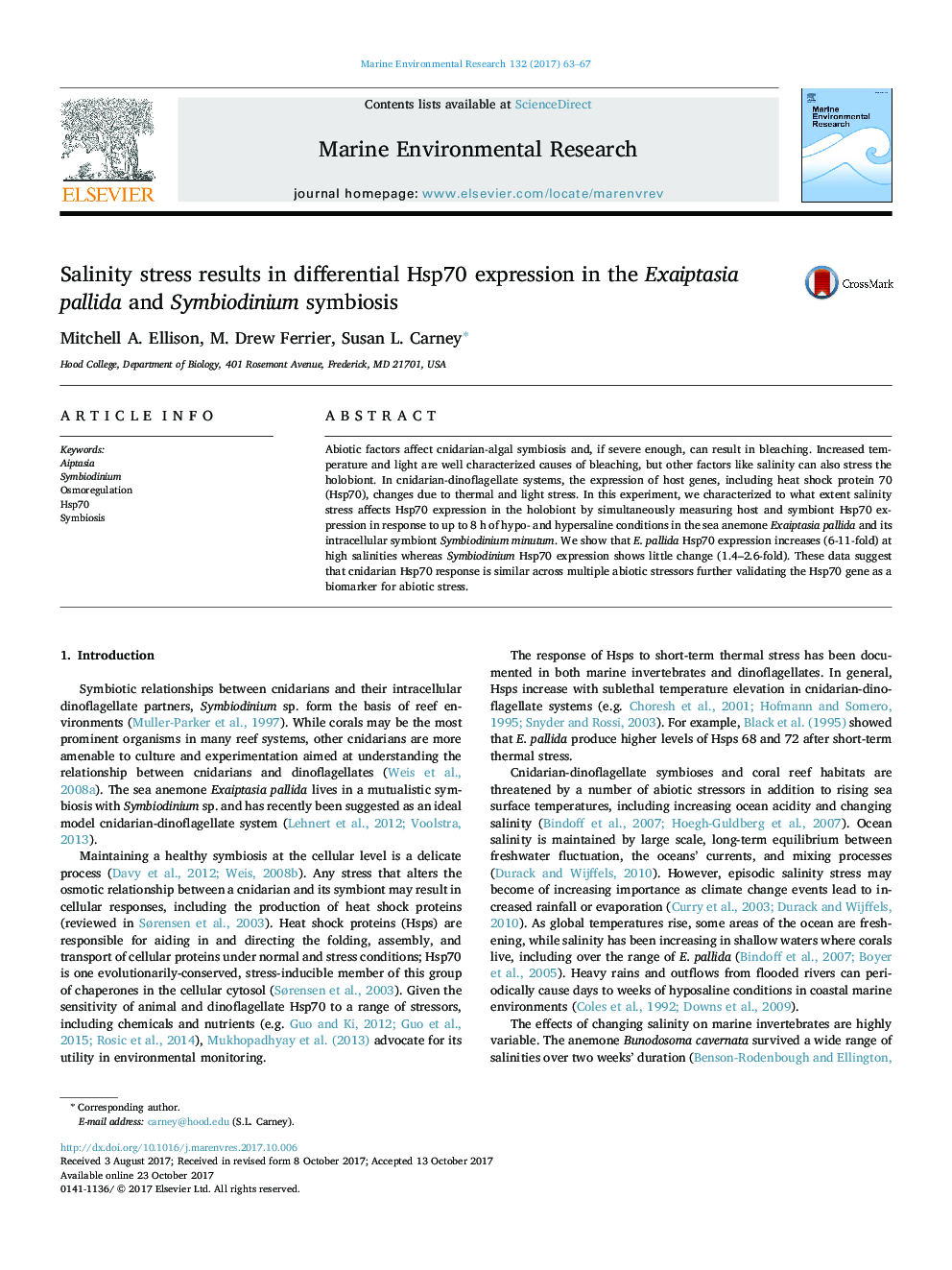| Article ID | Journal | Published Year | Pages | File Type |
|---|---|---|---|---|
| 8886409 | Marine Environmental Research | 2017 | 5 Pages |
Abstract
Abiotic factors affect cnidarian-algal symbiosis and, if severe enough, can result in bleaching. Increased temperature and light are well characterized causes of bleaching, but other factors like salinity can also stress the holobiont. In cnidarian-dinoflagellate systems, the expression of host genes, including heat shock protein 70 (Hsp70), changes due to thermal and light stress. In this experiment, we characterized to what extent salinity stress affects Hsp70 expression in the holobiont by simultaneously measuring host and symbiont Hsp70 expression in response to up to 8Â h of hypo- and hypersaline conditions in the sea anemone Exaiptasia pallida and its intracellular symbiont Symbiodinium minutum. We show that E. pallida Hsp70 expression increases (6-11-fold) at high salinities whereas Symbiodinium Hsp70 expression shows little change (1.4-2.6-fold). These data suggest that cnidarian Hsp70 response is similar across multiple abiotic stressors further validating the Hsp70 gene as a biomarker for abiotic stress.
Related Topics
Physical Sciences and Engineering
Earth and Planetary Sciences
Oceanography
Authors
Mitchell A. Ellison, M. Drew Ferrier, Susan L. Carney,
